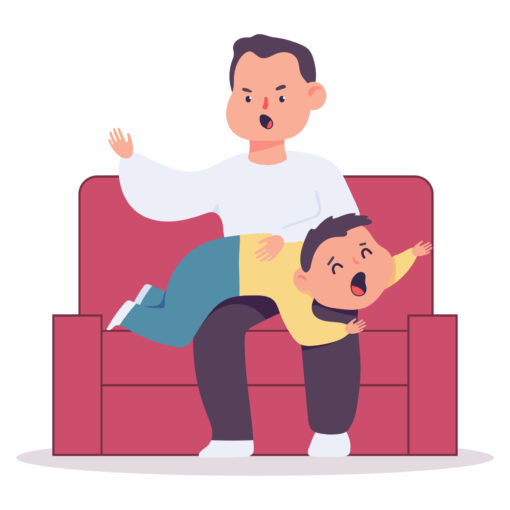Spanking, a contentious topic in parenting and legal circles, raises important questions about where the line between discipline and abuse lies. In California, the law allows for corporal punishment of a child, such as spanking, but with strict limitations.
This blog aims to clarify the legal stance on spanking a child in California and the potential legal consequences. If you have been charged with a crime involving a child, contact Chambers Law Firm at 714-760-4088 for a free legal consultation.
The Legal Boundaries of Spanking in California
In California, spanking or other forms of corporal punishment are not outright illegal. However, the punishment must not cross the threshold into excessive or unreasonable, which can lead to child abuse allegations. The court generally considers visible injury to a child as crossing the line from reasonable discipline to abuse.
Defining Child Abuse
Under California Penal Code 273d PC, child abuse occurs when someone willfully inflicts cruel or inhuman corporal punishment or an injury resulting in a traumatic condition on a child. The intent here is not to harm or break the law, but the action must be purposeful.
Penalties for Child Abuse
Child abuse in California can be charged as either a felony or a misdemeanor. Felony charges may lead to two, four, or six years in jail and a $6,000 fine, whereas misdemeanors can result in a year in county jail and the same fine amount.
Mandatory Reporting in California
Certain professionals, like teachers, medical personnel, and social workers, are mandated to report suspected instances of child abuse or neglect. Failing to report can lead to criminal charges.
Legal Defenses Against Child Abuse Accusations
Defenses against accusations of child abuse include false allegations, accidental injuries, legal right to discipline, and the injury being caused by something other than abuse.
Spanking with an Object
Spanking a child with an object is legally permissible in California if deemed justifiable. This means the punishment must be necessary and reasonable under the circumstances.
Global Perspective
It’s noteworthy that some countries, such as Sweden, have outlawed the physical punishment of children altogether.
Excessive Spanking and Legal Consequences
Excessive spanking, beyond disciplinary purposes, can result in child abuse charges. Conviction requires proving beyond a reasonable doubt the willful infliction of cruel or inhuman physical punishment resulting in a traumatic physical condition.
Related Offenses
In cases of corporal injury to a child, additional charges could include child endangerment, child neglect, or battery.
Punishment for Excessive Spanking
The severity of punishment for excessive spanking depends on the case specifics and the accused’s criminal history. It can range from one year in county jail and a $6,000 fine for a misdemeanor to up to six years in jail for a felony.
Probation in Child Abuse Cases
Probation is a potential outcome in child abuse cases. This includes a minimum of three years probation, a protective order for the child, and completion of a child abuser’s treatment counseling program.
Defending Against Child Abuse Charges
Defenses in child abuse cases include false accusations, injuries caused by other factors, acting within legal rights to discipline, and accidental injury.
Child Abuse Central Index (CACI) Implications
Excessive spanking can lead to one’s name being listed in the CACI, even without criminal charges. To contest this, a timely request for a grievance hearing is necessary.
Seeking Legal Assistance from Chambers Law Firm
Facing accusations of child abuse for spanking can have severe legal repercussions. At Chambers Law Firm, we understand the complexities of such cases. Contact us at 714-760-4088 for skilled legal representation. We’ll help navigate the legal intricacies and defend your rights effectively.





